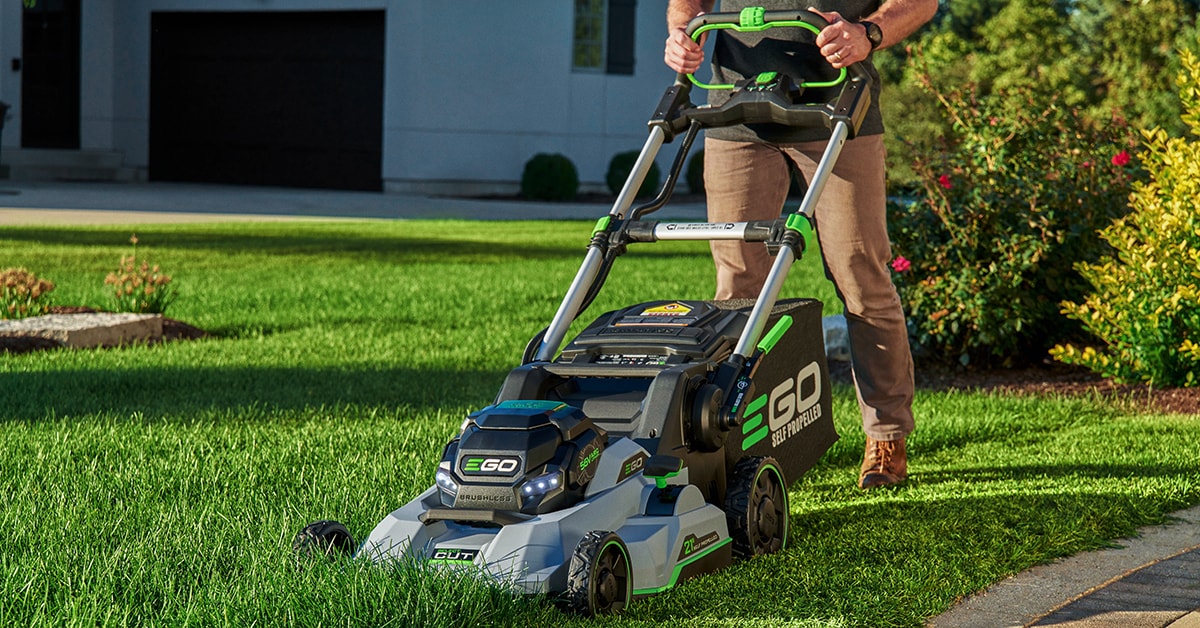
Residential Lawn Mower Guide: Choosing the Perfect Fit for Your Yard
This comprehensive guide will help you navigate the world of residential lawn mowers, ensuring you make an informed decision that suits your yard’s unique needs.
Maintaining a lush, well-groomed lawn is a source of pride for many homeowners. However, achieving that picture-perfect yard requires the right tools, and a residential lawn mower is at the heart of it all. With so many options available on the market, selecting the ideal mower can be overwhelming. This comprehensive guide will help you navigate the world of residential lawn mowers, ensuring you make an informed decision that suits your yard’s unique needs.
Understanding Your Lawn Mower Needs

Before diving into the different types of residential lawn mowers, it’s essential to assess your lawn’s characteristics and your personal preferences. Consider the following factors:
- Lawn Size: The size of your yard will play a crucial role in determining the appropriate mower type and power. Larger lawns may require more powerful and efficient mowers, while smaller yards can benefit from compact and maneuverable models.
- Terrain: Is your lawn flat or does it have slopes, hills, or uneven surfaces? Certain mowers are better equipped to handle different terrains, ensuring a consistent and even cut.
- Grass Type: Different grass types have varying moisture levels, density, and growth habits. Choose a mower that can handle the specific type of grass in your yard for optimal results.
- Noise Levels: If you live in a densely populated area or prefer a quieter mowing experience, consider models with noise-reducing features or electric options.
- Environmental Impact: For eco-conscious homeowners, electric or manual reel mowers may be preferred over gas-powered models to reduce emissions and noise pollution.
Types of Residential Lawn Mowers

Once you’ve assessed your lawn’s needs and personal preferences, it’s time to explore the different types of residential lawn mowers available:
1. Walk-Behind Mowers
Walk-behind mowers are a popular choice for small to medium-sized yards. They come in various configurations:
- Reel Mowers: These manual mowers are eco-friendly and best suited for small, flat lawns with fine-bladed grasses.
- Gas-Powered Push Mowers: Offering more power and versatility than reel mowers, gas-powered push mowers are suitable for larger yards with tougher grass types.
- Electric Push Mowers: These mowers are quieter and more environmentally friendly than gas-powered models, but they may have limited runtime and power.
2. Self-Propelled Mowers
For those seeking convenience and reduced physical effort, self-propelled mowers are an excellent option. These mowers come with various drive systems, such as front-wheel, rear-wheel, or all-wheel drive, providing better traction and maneuverability on uneven terrain.
3. Riding Mowers
Riding mowers are convenient if your yard is very vast or if you just want to sit down and mow. There are various styles available for these mowers:
- Lawn Tractors: Lawn tractors boast powerful engines, sturdy construction, and the capability to tow attachments; they are ideal for bigger yards.
- Zero-Turn Mowers: Turf-Efficient Mowers: For yards with obstacles or compact spaces, these mowers are perfect because to their zero-turn radius and exceptional manoeuvrability.
4. Robotic Mowers
Robotic mowers are a cutting-edge alternative for those who want the most hassle-free way to mow their lawn. With these mowers, you may have a perfect lawn with no work at all because they function on their own. They will navigate your yard and cut the grass at certain intervals.
Factors to Consider When Choosing a Residential Lawn Mower

Keeping in mind the many varieties of home lawn mowers, here are a few more things to think about before buying one:
- Cutting Width: A larger cutting deck allows for quicker mowing with fewer passes, but it can be too wide for narrow areas or smaller yards.
- Cutting Height Adjustment: Mowers with adjustable cutting heights are great for lawns with varying textures and personal preferences.
- Mulching Capabilities: Clippings from a mulching mower can be left on the lawn to break down and enrich the soil with nutrients.
- Bagging or Side Discharge: Either by bagging them or by having them discharged from the side, depending on your desire.
- Ease of Maintenance: For a mower that is easy to maintain, look for features like washout ports or a blade that is easily accessible.
- Safety Features: Search for mowers that have safety features like as automatic shut-off switches, blade brake clutches, and controls that are easy to operate.
FAQs about Residential Lawn Mowers
Q: How do I determine the right mower size for my yard?
The grass area you have should be considered while choosing a mower. For smaller yards (up to 1/4 acre), mowers with cutting widths of 20-22 inches should be enough, while mowers with cutting widths of 30 inches or wider may be necessary for bigger yards (1/2 acre or more).
Q: Should I choose a gas-powered or electric mower?
Gas-powered lawn mowers are noisier and more polluting, but they have more power and runtime. Quieter and less harmful to the environment, electric mowers may have shorter runtimes and less power. Think about the size of your yard, your own tastes, and any environmental issues you may have before making a final decision.
Q: How often should I replace my residential lawn mower?
Type, use, and maintenance all have a significant impact on how long a residential lawn mower lasts. With regular maintenance, a walk-behind mower has a typical lifespan of 5–10 years, whereas a riding mower has a potential lifespan of 10-15 years.
Q: Can I use a residential lawn mower on rough or hilly terrain?
It is normally advised to utilise a self-propelled or riding mower with features like all-wheel drive and better traction, however there are domestic mowers that can tackle uneven terrain.
Q: Are there any special considerations for specific grass types?
Indeed, some varieties of grass may necessitate the use of specialised mower settings. For instance, fescue and bentgrass, which have fine blades, are ideal mowed using reel mowers, however Zoysia and St. Augustine, which have broader blades, may necessitate a more robust gas-powered or riding mower.
You Can Also Read Here A Comprehensive Guide to Different Types of Foam Mattresses
